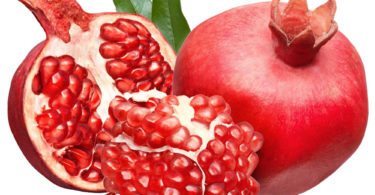In a significant move to combat the global spread of monkeypox, the World Health Organization (WHO) has officially approved the first-ever vaccine for the virus. As the outbreak continues to raise concerns across the globe, this approval marks a crucial step in controlling the spread and providing protection to vulnerable populations. Monkeypox, which was previously confined to isolated outbreaks in Central and West Africa, has now reached epidemic proportions in multiple countries, triggering a global health alert.
The Approval: A Landmark Decision
The WHO’s approval of the monkeypox vaccine follows an accelerated evaluation process in response to the rapidly increasing cases worldwide. The vaccine, known as MVA-BN or Jynneos in the U.S. and Imvanex in Europe, was initially developed to combat smallpox. Due to the close relationship between the monkeypox and smallpox viruses, researchers found that the vaccine provided cross-protection against monkeypox as well. The approval was granted after clinical trials showed its efficacy in preventing monkeypox infection, as well as its safety in humans.
This decision has been met with widespread relief, especially in countries that have been grappling with the swift rise in monkeypox cases. WHO Director-General Dr. Tedros Adhanom Ghebreyesus commented on the significance of the vaccine approval, stating, “This is a milestone in global health efforts. The approval of the first monkeypox vaccine is an important tool in fighting this disease, and we are committed to ensuring its accessibility to all who need it, especially in affected regions.”
The Monkeypox Outbreak: A Global Concern
Monkeypox, a viral zoonotic disease, was first discovered in humans in the 1970s in the Democratic Republic of the Congo. The virus is related to smallpox, but it causes less severe symptoms. It spreads through close contact with an infected person, animal, or contaminated materials such as bedding and clothing. Human-to-human transmission has been particularly concerning in the latest outbreak, which has seen thousands of cases reported in non-endemic regions, including Europe, North America, and parts of Asia.
Since the global outbreak began in 2022, the virus has spread to over 80 countries, with more than 100,000 cases reported. Initially, cases were linked to international travel, but community transmission has now been observed in several nations, making containment more challenging. Monkeypox symptoms include fever, swollen lymph nodes, and a characteristic rash that can develop into painful lesions. While the disease is usually self-limiting and less deadly than smallpox, it can lead to severe complications, especially in immunocompromised individuals and children.
The spread of the virus has put immense pressure on global health systems, especially in countries already dealing with COVID-19. The need for an effective vaccine became urgent as the number of cases increased and containment strategies—such as quarantining and contact tracing—proved insufficient to curb the spread.
Vaccine Development and Trials
The newly approved vaccine, MVA-BN, is a non-replicating modified vaccinia Ankara (MVA) vaccine. It was initially developed by Bavarian Nordic, a Danish pharmaceutical company, as a safer alternative to older smallpox vaccines. Unlike the traditional smallpox vaccines, which used live replicating vaccinia viruses, MVA-BN uses a weakened form of the virus that cannot replicate in human cells, reducing the risk of serious side effects.
The vaccine was first approved for smallpox in Europe in 2013 and in the U.S. in 2019, under the name Jynneos. As monkeypox cases surged in 2022, the vaccine was repurposed for emergency use to combat the outbreak. Preliminary clinical trials demonstrated that the vaccine offered substantial protection against monkeypox, with an efficacy rate of around 85%. The trials involved both people who had been exposed to monkeypox and individuals at higher risk of exposure, such as healthcare workers and close contacts of confirmed cases.
The WHO’s approval of the vaccine follows similar moves by regulatory authorities in the U.S. and Europe. In fact, the vaccine had been in limited use in several countries under emergency authorization before receiving full approval. The rapid development and approval of the monkeypox vaccine have been seen as a model for future responses to emerging infectious diseases.
Global Distribution and Equity Concerns
While the approval of the monkeypox vaccine is a major step forward, global health experts have raised concerns about equitable access, particularly in low- and middle-income countries. During the COVID-19 pandemic, vaccine distribution was marred by significant inequities, with wealthier nations securing large quantities of vaccines, leaving poorer countries with limited access. To prevent a similar situation with the monkeypox vaccine, the WHO has emphasized the importance of fair and timely distribution.
Dr. Tedros warned against vaccine hoarding, stating, “We cannot afford a repeat of the mistakes made during the COVID-19 pandemic, where inequity in vaccine distribution led to unnecessary suffering. The monkeypox vaccine must be available to all, especially those in regions where the virus is spreading fastest.”
The WHO is working with vaccine manufacturers, governments, and global health organizations to establish a fair distribution framework. The organization has also urged countries to prioritize high-risk groups, including healthcare workers, immunocompromised individuals, and close contacts of confirmed monkeypox cases.
Public Health Measures and Vaccination Campaigns
As the monkeypox outbreak continues, public health authorities in various countries have already begun rolling out vaccination campaigns. In the U.S., the Centers for Disease Control and Prevention (CDC) have recommended vaccination for high-risk populations, such as men who have sex with men (MSM) and individuals with multiple sexual partners, as these groups have shown higher rates of infection in recent outbreaks. The U.K., Canada, and several European nations have adopted similar strategies.
In addition to vaccination, other public health measures remain critical in controlling the spread of monkeypox. Contact tracing, isolation of confirmed cases, and raising awareness about the virus and its symptoms are key components of the response. The WHO has also encouraged countries to increase surveillance and testing to identify and contain outbreaks quickly.
Challenges and Future Outlook
Despite the approval of the vaccine, several challenges remain in the fight against monkeypox. Vaccine hesitancy, logistical barriers to distribution, and the ongoing spread of the virus in under-resourced areas could hinder efforts to control the outbreak. Additionally, the production capacity of the vaccine is limited, and it may take time to meet global demand.
Nonetheless, the approval of the first monkeypox vaccine is a hopeful sign that the global community is better equipped to handle emerging infectious diseases. It also highlights the importance of scientific innovation and international collaboration in addressing global health threats.
Conclusion
The WHO’s approval of the first monkeypox vaccine is a landmark moment in the fight against a virus that has caused widespread concern and disruption. With cases continuing to rise globally, the vaccine offers hope for preventing further transmission and protecting vulnerable populations. However, equitable distribution and continued public health efforts will be crucial to ensuring that the vaccine reaches those who need it most.
As the world continues to grapple with the outbreak, the approval of the monkeypox vaccine serves as a reminder of the importance of preparedness, cooperation, and swift action in addressing global health emergencies. With the right strategies in place, there is hope that the spread of monkeypox can be contained and ultimately eradicated.
The World Health Organization (WHO) has approved the first-ever vaccine against monkeypox, a significant breakthrough in the global effort to combat the virus. The vaccine, named MVA-BN, is designed to be administered in two doses, spaced four weeks apart, to individuals aged 18 and older.
In a statement, the WHO revealed that the vaccine has demonstrated 76% effectiveness after the first dose and 82% following the second dose. This approval is a critical step in addressing what the WHO continues to classify as a public health emergency of international concern, as monkeypox cases surge worldwide.
Monkeypox, once largely confined to parts of Central and West Africa, has now spread to 121 countries, resulting in over 500 deaths this year alone. The virus, which causes painful skin lesions, fever, and swollen lymph nodes, is particularly dangerous for high-risk groups, including those with compromised immune systems. In such individuals, the virus can lead to mortality rates of up to 10%.
The WHO’s Strategic Advisory Group of Experts (SAGE) on Immunization has recommended the MVA-BN vaccine for use in high-risk populations. This includes infants, children, and pregnant or immunocompromised individuals, although it has not yet been licensed for those under 18. In cases of limited vaccine supply, the WHO has also suggested administering a single dose to maximize coverage in affected communities.
The approval of the MVA-BN vaccine is expected to play a crucial role in curbing the spread of monkeypox, particularly among vulnerable populations. As the first monkeypox vaccine to be included on the WHO’s prequalification list, this decision is likely to expedite access to the vaccine in regions facing urgent outbreaks.
The WHO’s prequalification assessment for MVA-BN was based on data provided by its manufacturer, Bavarian Nordic A/S, and reviewed by the European Medicines Agency (EMA), which serves as the regulatory authority for the vaccine in Europe.
Since the beginning of the global outbreak in 2022, monkeypox has spread to over 120 countries, with more than 103,000 confirmed cases worldwide. In 2024 alone, 723 deaths and over 25,000 suspected or confirmed cases have been reported across 14 African countries, illustrating the rapid spread of the virus.
In Pakistan, five cases of monkeypox have been confirmed among travelers returning from abroad. Local health authorities are actively monitoring the situation, hoping to prevent further outbreaks through early detection and control measures.
With the approval of the MVA-BN vaccine, health experts and governments hope to finally turn the tide in the fight against the monkeypox virus. The global rollout of the vaccine promises to provide much-needed protection to high-risk individuals and help control the outbreak in regions hardest hit by the virus.







